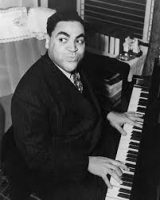
Thomas Wright “Fats” Waller (May 21, 1904 – December 15, 1943)
Thomas Wright "Fats" Waller (born May 21, 1904, New York City, New York, U.S. – died December 15, 1943, Kansas City, Missouri, U.S.), was an American influential jazz pianist, organist, composer, violinist, singer, and comedic entertainer, whose innovations to the Harlem stride style laid the groundwork for modern jazz piano, and whose best-known compositions, Ain’t Misbehavin’ and Honeysuckle Rose, were inducted into the Grammy Hall of Fame posthumously, in 1984 and 1999. Waller copyrighted over 400 songs, many of them co-written with his closest collaborator, Andy Razaf.
Contents
BIOGRAPHY
Background
Fats Waller was born as Thomas Wright Waller on May 21, 1904, in Harlem, New York. His father Edward Martin Waller was the owner of a profitable trucking business and also a lay preacher at the Abyssinian Baptist Church. His mother Adeline Locket Waller was a music teacher and church organist. Waller was the youngest of his parents’ eleven children, out of which only five survived infancy. He was a very restless child, who was keenly interested in music.
Education
As a small boy, Waller already showed signs of promise as a musician, learning to play piano at age six. His first piano teacher was certain Alice Perry. Later, he took a few lessons from Frances Murphy. He was also studying under the music director of his father’s church, Mrs. Edna Perrin, who exposed him to the traditional organ works of Bach. By the age of 10, Fats had acquired a basic knowledge in music and proficiency in organ.
He’d go on to learn a number of other instruments, including the string bass and violin at ‘Public School 89’, where he studied until the age of 14. Waller’s interest in music has, in part, been attributed to his mother, a church organ player and singer who introduced him to classical music. In addition, his grandfather, Adolph Waller, was a well-known Virginia violinist.
In 1918, he was enrolled in the DeWitt Clinton High School, where he acquired the nickname ‘Fats’. Shortly, he began taking part in the school orchestra. In the same year, Waller won a talent contest playing Johnson's ‘Carolina Shout’, a song he learned from watching a player piano play it.
Rise to Popularity and Career
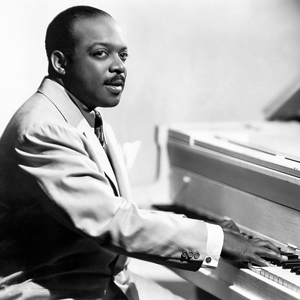
William James "Count" Basie (August 21, 1904 – April 26, 1984) was an American jazz pianist, organist, bandleader, and composer.
In 1919, 15 years old Fats Waller dropped out of school to become an organist at Lincoln Theatre, earning $32 a week. His job was to play the organ to accompany the silent films shown there. Concurrently, he started studying under pianist Russell Brook, before composing his first rag that year. He found time to give a young Count Basie organ lessons during the shows.
Waller’s mother died on November 10, 1920 from a stroke due to diabetes. After her death and a quarrel with his father, Fats moved in with the family of pianist Russell B.T. Brooks, who introduced the youngster to James P. Johnson, founder of the stride school of jazz piano.
Waller’s mother’s death was not the only reason 1920 marked a turning point for Waller. That year, he married his first wife, Edith Hatch. The couple welcomed son Thomas Waller Jr. the following year.
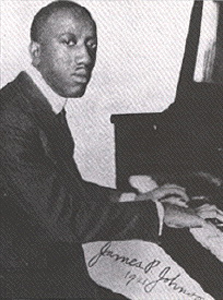
James Price Johnson (February 1, 1894 – November 17, 1955) was an American pianist and composer. A pioneer of stride piano, he was one of the most important pianists in the early era of recording
As the 1920s began, Waller’s life was already quite busy. In addition to playing at the Lincoln Theatre, he began making piano rolls (which would eventually total 20), he cut his first solo records in 1922 at the age of 18 (Muscle Shoals Blues and Birmingham Blues) these constituting his first solo piano pieces. His relaxed technique and artistry already showed how he was comfortable with recording sessions. Waller performed regularly at wild rent parties, sharing the piano bench with James P. Johnson, Willie ‘The Lion’ Smith and other local pianists. Both Muscle Shoals Blues and Birmingham Blues were written spontaneously in the studio, which proved his marvellous tune-writing ability. Subsequently, he started working with Williams and co-wrote Wild Cat Blues with him. The number was first recorded by Williams on July 30, 1923.
As his professional life took off, his personal life experienced a setback when his wife divorced him in 1923. In 1924, the young musician’s first composition, Squeeze Me, an important early work that established his bona fides as a songwriter. Two years later, Waller married his second wife, Anita Rutherford, with whom he’d have sons Maurice Thomas Waller, born in 1927, and Ronald Waller, born in 1928.
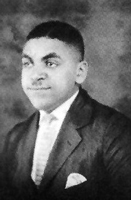
Fats Waller as a young man
Waller became more involved with writing and performing for revues in the late 1920s, starting with Keep Shufflin’ in 1927. He forged a strong collaborative partnership with Andy Razaf, with whom he wrote two of his most famous stage songs, Honeysuckle Rose and Ain’t Misbehavin’. During this time, Waller also recorded such standards as Handful of Keys and Valentine Stomp as a soloist, and The Minor Drag and Harlem Fuss as leader of Fats Waller and His Buddies.
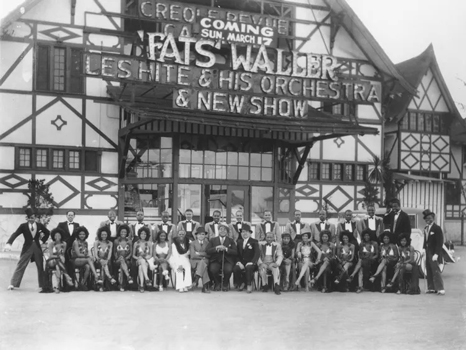
Pianist Fats Waller (front Center) poses with Les Hite (front in white) and his orchestra along with club owner Frank Sebastian and The Creole Dancing Revue at Frank Sebastian's New Cotton Club circa 1935 in Culver City, California.
Radio and Film
Waller branched out to radio with his New York-based shows Paramount on Parade and Radio Roundup from 1930-1931, and the Cincinnati-based Fats Waller’s Rhythm Club from 1932-1934. After returning to New York in 1934, he began a new regular radio program, Rhythm Club, and formed the Fats Waller and His Rhythm sextet.
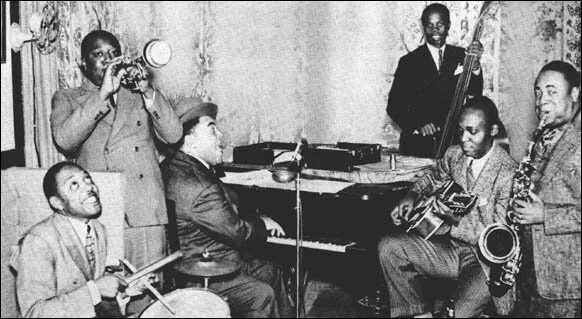
Fats Waller and his Rhythm – 1938 left to right Slick Jones, Herman Autrey, Fats Waller, Cedric Wallace, Albert Casey, Eugene Sedric
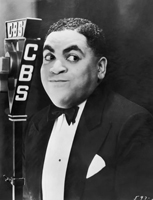
Fats Waller smiles in front of a CBS radio microphone circa 1935
Waller appeared in two Hollywood films in 1935, Hooray for Love! and King of Burlesque. However, while his fame was spreading, he reportedly had become disenchanted with the comedic, irreverent persona that fans had come to expect from his broadcasts, instead seeking more respect as a serious artist. He appeared to be making strong strides in that direction after a trip to England in 1938, recording the ambitious composition London Suite.
Late Career and Death
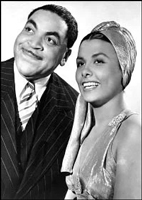
Waller with Lena Horne, his co-star in the 1943 musical ‘Stormy Weather’.
Waller returned to Hollywood early in 1943 to film Stormy Weather with Lena Horne and Bill Robinson. After returning to New York, he began writing songs for another revue, Early to Bed.
Waller had maintained a heavy travel schedule into the 1940s, despite declining health, but the wear and tear eventually caught up with him. While returning home from another West Coast trip in late 1943, he contracted bronchial pneumonia, an illness that silenced the beloved and influential jazz great for good during a stop in Kansas City, Missouri, on December 15, 1943.
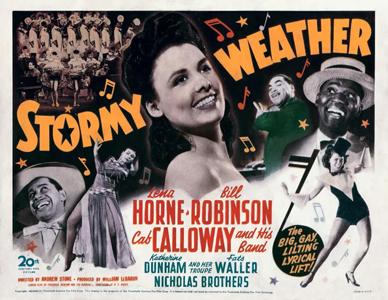
Title lobby card from the movie 'Stormy Weather' (20th Century Fox). John D. Kisch
SHEET MUSIC
You can find and download free scores of the composer:
0 Comments